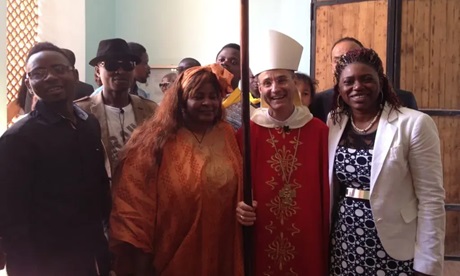In a May 21 interview with CBS, the Holy Father confirmed the exclusion of women’s diaconal ordination from the scope of discussion at the Synod on Synodality in the Catholic Church.
There are undoubtedly many reasons for this authoritative decision, and it can be legitimately reduced to the pope’s personal conviction formed in prayer, which suffices.
However, at least three reasons can still be considered.
Church unity
The first reason is the pope’s responsibility as the ultimate guardian of the Church’s unity.
It is his role to assess the Church’s “elasticity” in its vast geographic, historical, cultural, and ideological diversity.
The reception of the document Fiducia supplicans on blessings showed the extreme difficulty of now having a single audible word across all continents, given the diversity of societies and the church’s relationships with each of these societies.
The specificity of the synodal dynamic in our Catholic Church is to be “with Peter under Peter.”
The pope is both a member of the Synodal Assembly and in a position of authority relative to it.
It is an advantage to feel, in each Synod, the Holy Father’s will to steer the church in a given direction.
But on this path, we must walk together, often at the pace of the slowest. The appreciation of this pace falls under the pope’s own responsibility.
Regarding the burning issue of women’s place in the life of the church and the gap with their place in society worldwide, Pope Francis’s pontificate has shifted lines that were difficult to imagine being moved.
The horizon unfolds as we walk, and what seemed unimaginable yesterday, like the appointment of women to the highest responsibilities in the Roman Curia, has become natural today.
Likewise, what seems unimaginable today will become natural tomorrow.
The Sacrament of Holy Orders
The second reason concerns the central question of the Sacrament of Holy Orders.
It is the backbone of the ecclesial body we form.
Does this backbone limit the body’s growth, or does it hold it upright in its uniqueness?
Deep divisions over the answer to this question are not hard to foresee.
We all aim to change our bodies, to slim them down, to strengthen them, but we know that we cannot change bodies without changing our identity.
In opening the Sacrament of Holy Orders to women through diaconal ordination, does it represent a healthy work on our ecclesial body, or does it amount to an impossible body change?
The Holy Father seems to have opted for the latter.
One thing is certain: no substantial evolution on this issue, as on others, can dispense with in-depth reflection on the Sacrament of Holy Orders.
Is everything in it intangible and set for eternity? A backbone accompanies the growth of the human body. If it blocks growth, it renders the whole body disabled.
The risk of clericalism
The third reason may be the Holy Father’s intention to combat the risks of deviations inherent to what he calls clericalism, to which male exclusivity is not unrelated.
The composition of the synod and its way of working, as well as its expression, invalidate any idea of a third Vatican Council modeled after Vatican II.
With Vatican II, the major directions for our church for the coming decades would be developed among bishops alone.
This (r)evolution has profound implications for the role of the laity, and thus also of women, in the Catholic Church.
Moreover, while women are currently barred from accessing Holy Orders, the distribution of missions between clerics and non-clerics is not immutable.
In his response to the American journalist who questioned him, the Holy Father reminded us that “women have always had the function of deaconesses without being deacons!”
Indeed, women have not waited for the sacrament of the diakonos, the servant, to assume the bulk of the minor and major services in the Church!
Opening the service of the Word
However, one service is still denied to them — preaching the Word in its most precious and most common setting, the Eucharist (Mass).
Many women have an education equal to or superior to that of clerics.
We know perfectly well how to maintain the symbolic link between the altar of the Word and that of the Eucharist when the main celebrant does not preach.
How can we then justify expressing only male sensibility in the commentary on the word of God during the Mass?
How can we justify denying women the opportunity to hear this Word resonate in their hearts?
I hope the time has finally come to open this service of the Word to trained laypeople and, thus, also to women.
- First published in La Croix
- Jean-Paul Vesco OP is the Archbishop of Algiers (Algeria).
News category: Analysis and Comment, Great reads.




